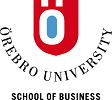No 2023:12: Artificial Intelligence, Tasks, Skills and Wages: Worker-Level Evidence from Germany
Erik Engberg (), Michael Koch (), Magnus Lodefalk () and Sarah Schroeder ()
Additional contact information
Erik Engberg: Örebro University School of Business, Postal: Örebro University, School of Business, SE - 701 82 ÖREBRO, Sweden
Michael Koch: Aarhus University, Postal: Fuglesangs Allé 4, 2632, 114, 8210 Aarhus V, Denmark
Magnus Lodefalk: Örebro University School of Business, Postal: Örebro University, School of Business, SE - 701 82 ÖREBRO, Sweden
Sarah Schroeder: Aarhus University, Postal: Fuglesangs Allé 4, 2632, 119, 8210 Aarhus V, Danmark
Abstract: This paper documents novel facts on within-occupation task and skill changes over the past two decades in Germany. In a second step, it reveals a distinct relationship between occupational work content and exposure to artificial intelligence (AI) and automation (robots). Workers in occupations with high AI exposure, perform different activities and face different skill requirements, compared to workers in occupations exposed to robots. In a third step, the study uses individual labour market biographies to investigate the impact on wages between 2010 and 2017. Results indicate a wage growth premium in occupations more exposed to AI, contrasting with a wage growth discount in occupations exposed to robots. Finally, the study further explores the dynamic influence of AI exposure on individual wages over time, uncovering positive associations with wages, with nuanced variations across occupational groups.
Keywords: Artificial intelligence technologies; Task content; Skills; Wages
JEL-codes: J23; J24; J44; N34; O33
Language: English
55 pages, December 27, 2023
Full text files
wp-12-2023.pdfFull text
Questions (including download problems) about the papers in this series should be directed to ()
Report other problems with accessing this service to Sune Karlsson ().
RePEc:hhs:oruesi:2023_012This page generated on 2026-01-16 04:38:50.

